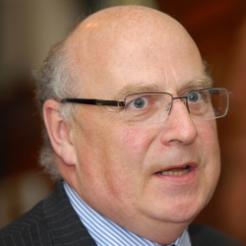The Social Impact Analysts Association is holding its inaugural meeting today amid calls for greater recognition of the importance of impact analysis and warnings that the progress of the practice and profession needs to be handled with great care.
The first meeting of the SIAA, two years in the making, is being held in London and this morning opened with former New Philanthropy Capital chief executive Martin Brookes advising that the organisation would not endeavour to create global systems for impact analysis, but to share data and methodologies.
Brookes said that the organisation would work to address what has sometimes been a “slow” and “haphazard” way of sharing information among civil society organisations.
“I still think there is an occasional resistance to impact analysis in the sector,” he said.
However, in his keynote speech at the conference NCVO chief executive Sir Stuart Etherington (pictured) warned about putting too much faith in the power of impact analysis to change the sector.
Sir Stuart told the audience of impact analysts, “You are in the vanguard of a terribly, terribly important journey, one in which it is possible to make terrible, terrible mistakes.”
The NCVO chief executive expressed concern that impact analysis could become an external “bolt-on” to charities and other organisations, and noted that when organisations began to jump on the bandwagon of impact reporting – which, he said often amounted to nothing more than a change of wording on annual reports – the “currency was rather devalued”.
“There will be cries of ‘less data and more learning’,” he said. Developing robust and relevant systems for impact analysis is notoriously complex, he added. “If it were that easy we would have done it by now.”
While strong impact data is exceptionally important and impact analysts should be given senior roles within organisations, Sir Stuart said, he warned against over-estimating the impact data can have on individual giving. “I’m not sure that philanthropy is driven by rational behaviour,” he said. Taking a swipe at NPC Sir Stuart added, “I think NPC would want to believe there is a ‘homo civicus’.”
The issue of league or comparison tables was roundly dismissed by Brookes, but Sir Stuart said there is growing public appetite for such mechanisms. “There will be increased demand for information that allows for comparison between organisations,” he predicted and ominously warned: “I think misuse of comparison data will happen.”
Future of SIAA may include professional qualifications
Martin Brookes said that while the SIAA wants its agenda to be driven by members, he expressed a personal preference for it moving towards developing a kind of professional qualification or accreditation for social impact analysts.
Having come from a meeting at his new employer, a hedge fund, Brookes said that the professionals in his current organisation all have a multitude of qualifications to do their jobs.
“I don’t think the [finance] industry I’ve come from this morning is smarter than [civil society], I just think it’s been better resourced.”
Brookes called the under-resourcing of the sector in terms of data a “collective failure” which can be attributed to failings by donors, institutional funders, government and the sector itself.
The SIAA, which was first mooted more than two years ago, now has 74 individual founding members from a dozen different countries, and is planning on launching corporate membership in the new year.









